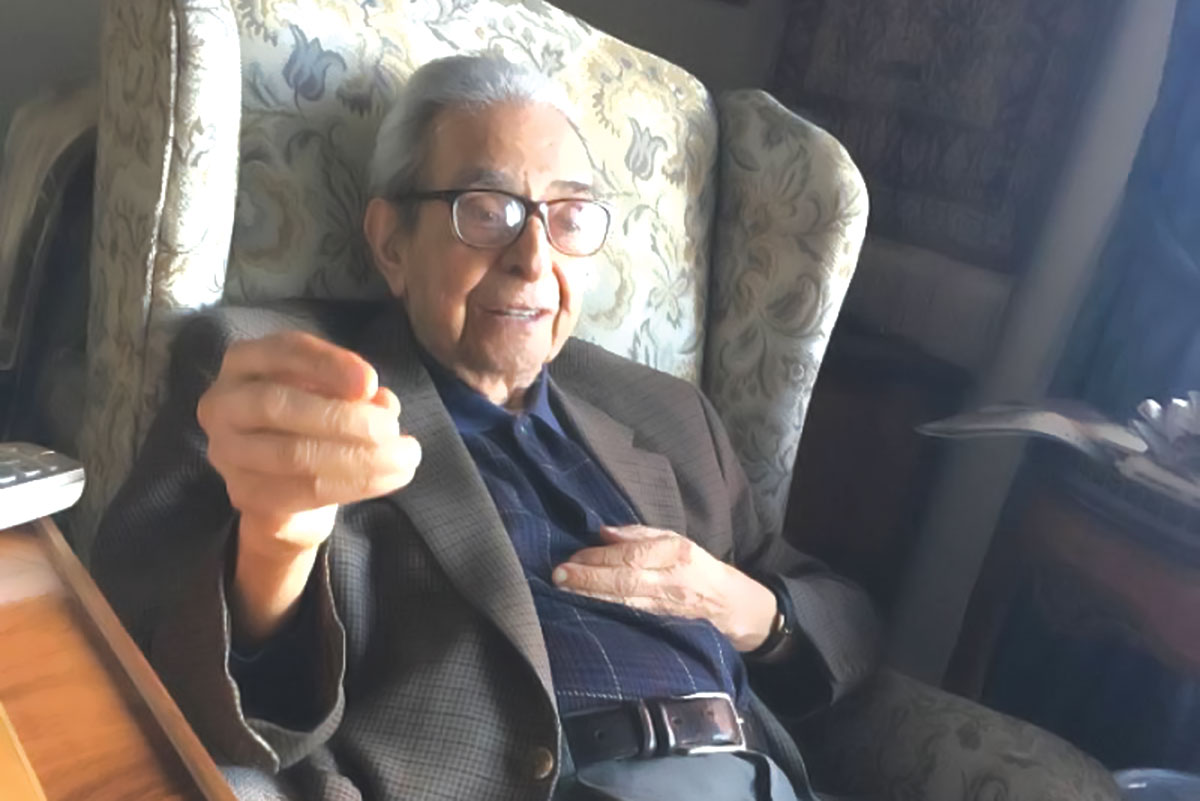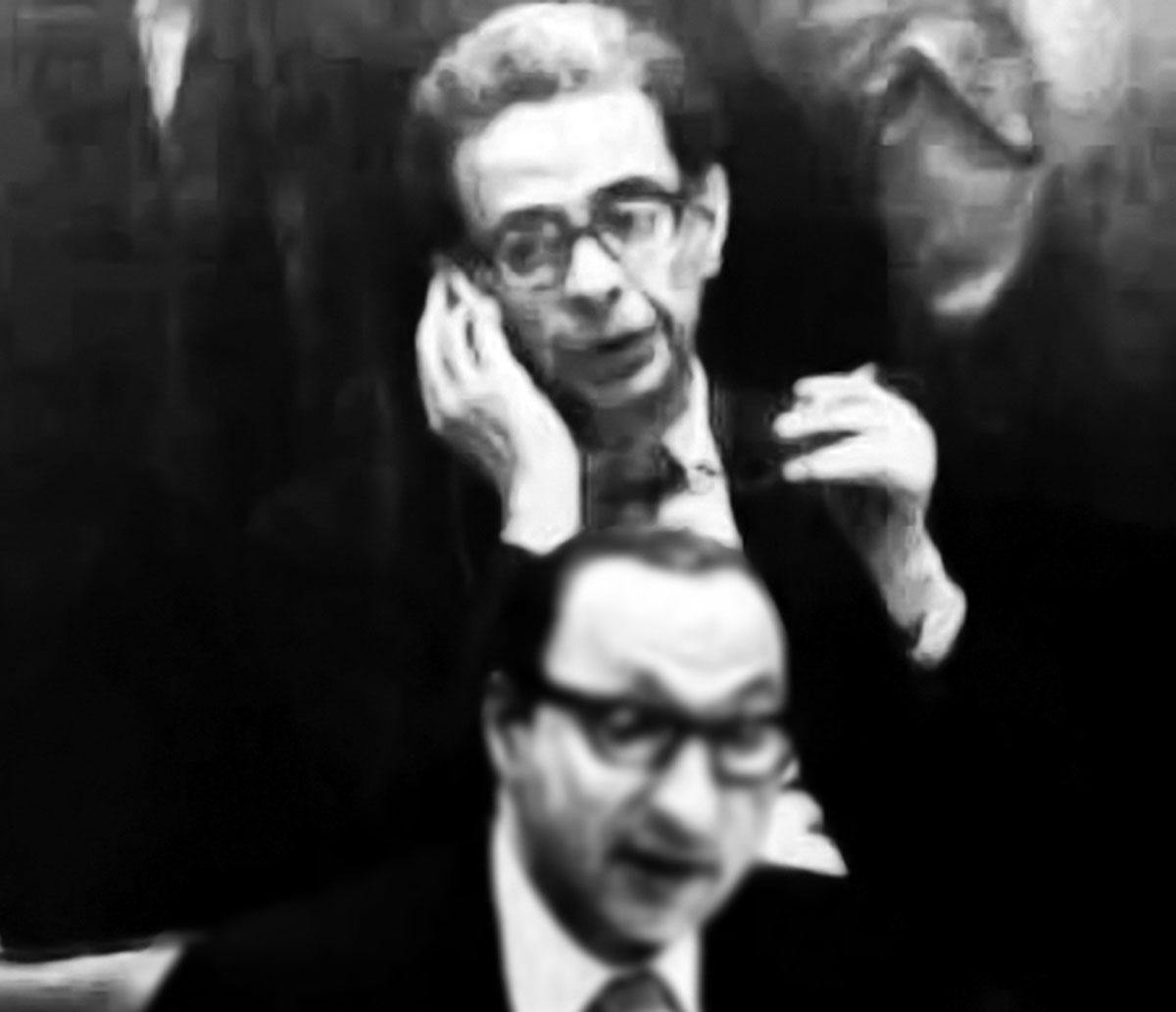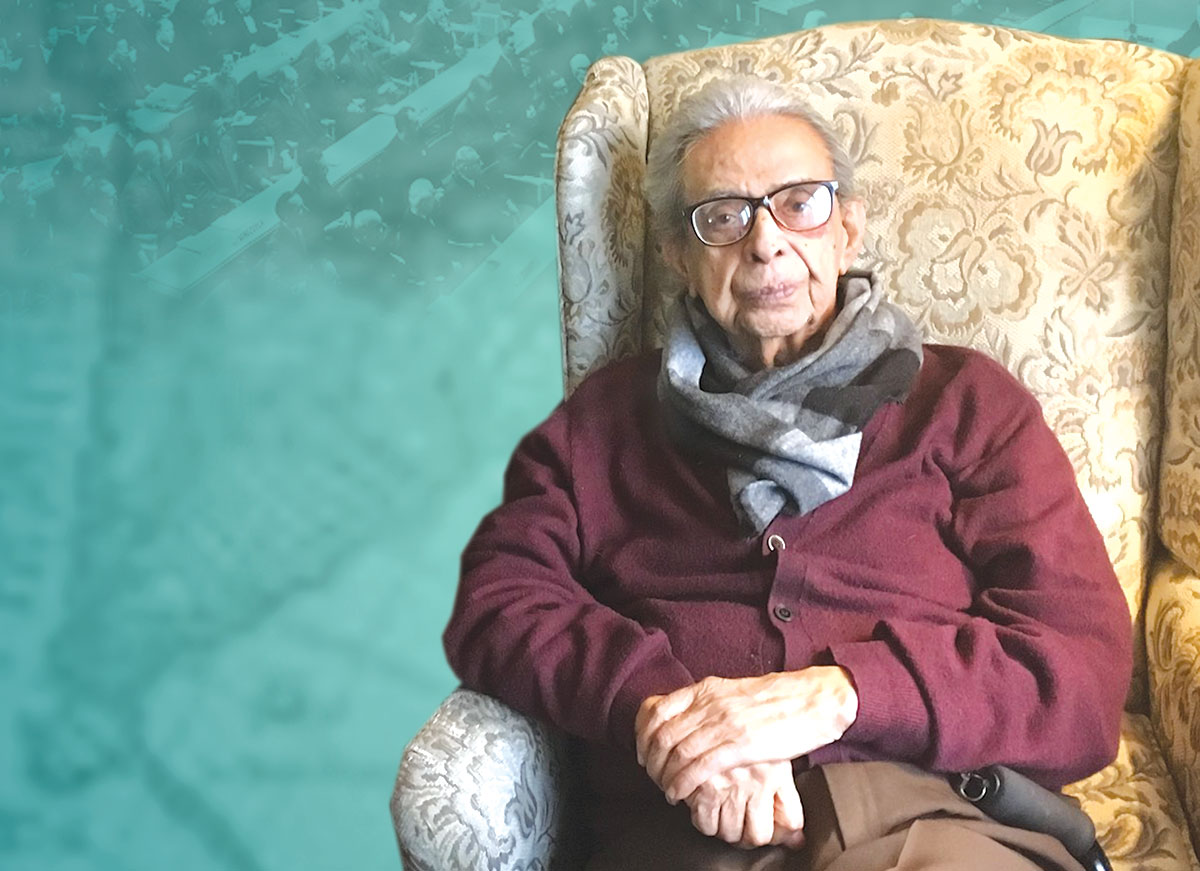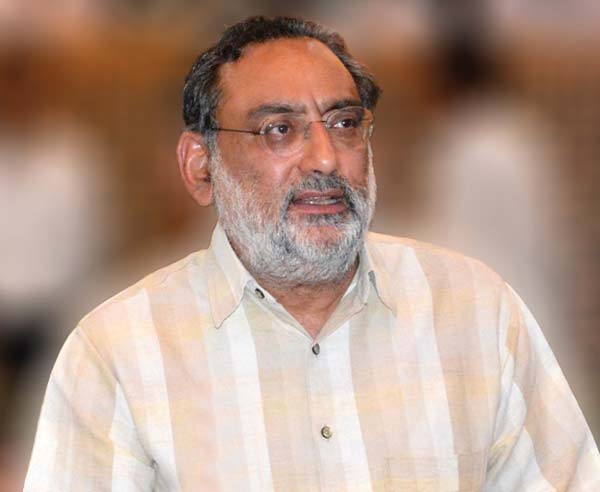How a downtown boy reaches the hallowed United Nations is nothing less than fantasy and fiction, says Haseeb A Drabu

M Yusuf Buch shot into fame in Kashmir in the summer of 1972. Till then, he was known to an elite group of well-connected people. The reason for him to get recognition in the land of his birth was that he accompanied Zulfiqar Ali Bhutto as an aide to the Shimla Summit.
Same Teacher
Coincidentally, Mrs Indira Gandhi was accompanied by another illustrious son of the soil, P N Dhar among others. Dhar and Buch had been contemporaries and were both students of J L Kaul. The story has it that he commented, “I am the proudest man in the subcontinent today as both heads of state are relying on my students for resolution of the most contentious issue in the world”.
For his extended family and a small circle of friends, Yusuf Buch was the epitome of brilliance; deeply loved, hugely respected and much admired. He was nothing short of a legend. Each one of them had stories about him which are nothing short of fairy tales.
I remember being told by my uncle, who was four years his junior in college, that when he was studying at the SP College, the teacher would come and ask for him before starting his lecture. And if Yusuf was in the class, he would teach with rigour, and if he wasn’t, he would lecture by rote!
Bhutto’s Speeches
It is not well known but Buchis said to have contributed to the famous speech that Bhuttos delivered at the United Nations Security Council in 1965. More significantly, he drafted the fire and brimstone speech delivered by Bhutto on December 15, 1971, when he launched an angry and tearful tirade, accusing the council of legalizing aggression when the Indo-Pakistani War was raging.
The Security Council heard Bhutto threaten them in shocked silence and disbelief when he said, “The United Nations resembles those fashion houses which hide ugly realities by draping ungainly figures in alluring apparel. The concealment of realities is common to both but the ugly realities cannot remain hidden. You don’t need a Secretary-General. You need a chief executioner”.
Never till then or since has the United Nation been so directly and evocatively attacked. The speech reads, “In the Security Council, we have been frustrated by a veto. Let us build a monument to the veto, a big monument to the veto. Let us build a monument to the impotence and incapacity of the Security Council and the General Assembly”.
It must have been a sight to see this speech delivered with Bhutto’s trademark theatrics. He tearfully concluded, “I am leaving your Security Council. I find it disgraceful to my person and to my country to remain here a moment longer than is necessary. I am not boycotting. Impose, impose any decision, have a treaty worse than the Treaty of Versailles, legalise aggression, legalise occupation, legalise everything that has been illegal up to 15 December 1971. Why should I waste my time here in the Security Council? I will not be a party to the ignominious surrender of a part of my country. You can take your Security Council. Here you are”. With this he tore his notes and left, leaving the members of the Security Council bewildered. All through this, Yusuf Buch was sitting right beside him admiring not only the words he had scripted being spoken with courage but also the style of delivery!
Along with foreign minister Aziz Ahmed, and Pakistan Envoy to the United Nations Agha Shahi, Yusuf Buch was a part of the most powerful troika in the Bhutto regime. Be it the war with India in 1971 or the Islamic summit or the walkout in the Security Council the three were in the kitchen baking Bhutto’s ideas and initiatives.
Kalashpora, Srinagar
How a downtown Kalashpora boy reached the power corridors of Pakistan and the hallowed precincts of the United Nations is nothing less than fantasy and fiction.
After his graduation, he passed the state competitive examination and needless to say, topped it. In the mid-forties, he was appointed NaibTehsildar and for a brief while held the charge as the Tehsildar in North Kashmir.

He seemed to have an experimental streak in him. As a NaibTehsildar in a case, he was offered a bribe to adjudicate against the lean of natural justice. He agreed to it with the sole intention of testing the system! Having got it through the bureaucratic maze, he proposed reforms to plug the obvious loopholes.
After a few years of serving the administrative machinery of the state, he was exited from Srinagar and sent off to Muzaffarabad. In 1949, there was an exchange of people between the two disjointed parts of Kashmir. His name, along with that of Mahmood Hashmi, Agha Showkat Ali, and Abdul Gani Rentoo figured in the list that came from across the Line of Control and he was summarily packed off without consent.
There is no doubt that the Sheikh Abdullah administration was more than happy to throw him out. He came from a family of bakras but his own politics was more being critical of the Sher!
Caught on Bund
From what I remember, he told me once that he was walking on the bund when he was accosted by a couple of policemen and told that he had to be sent across to Muzaffarabad in exchange of some people who the regime wanted back.
At 25 years of age, it was not unreasonable of him to expect a grand reception on the other side considering that he had been sought out by them, but was rather disappointed to find that he had nowhere to go. He was given shelter by a Kashmiri Samaritan.
For a few years, he idled away his time there. Till one fine morning, one of his friends pointed out an essay competition on the Emerging role of Asia in Global Politics or something to that effect. Buch agreed on the condition that he will get an uninterrupted quota of cigarettes! The habit of smoking stayed with him throughout most of his life. He chain-smoked Kent cigarettes. He sent in his entry and lo and behold, his essay was ranked as the best.
This is not where the fairy tale ends.
A Journalist
At a function of the awardees for the essay competition, he interacted with a veteran Time magazine correspondent who apparently was one of the judges for the essay competition. She offered him a subsistence allowance assignment and a residency permit. He just accepted it as destiny. He was to live there for most of his life except for a brief sojourn of about a decade when he lived in Islamabad, Pakistan.
It is tempting, given the political situation in Kashmir and his intellectual pursuits, to see his life in the US as “lived in exile”. But I am not sure it was that in a sense it is meant loaded with political connotations. He was for sure deeply engaged with and involved in Kashmir cause but not socially connected. It didn’t come across that he pined for the place. New York, with all its heady pace and the heavy buzz, was his home and life.
Buch always used to refer to himself as “Kashmiri born” or of “Kashmiri origin/descent”. He referred to himself as an American. Not even the hyphenated “American-Kashmiri” as is the won’t now. Maybe he was merely being technically correct about his citizenship. Maybe not.
He always found his short stays in Kashmir- he would always stay with his mother at Naqshband’s house in Barzalla- oppressive and irritating. I don’t think he could ever reconcile to the prevalent political dispensation. He would hardly socialise. He had gotten used to a very different life.
Bhutto’s Aide
During the course of his journalistic assignment, he got a communication and media role at the United Nations till he got a “surprising” call from Zulifqar Ali Bhutto when the latter became the President of Pakistan in 1971. From 1972 to 1977, when Bhutto was the Prime Minister of Pakistan, he was his special aide and information advisor. When the coup de state was done on Bhutto, he was summoned by Zia ul Haq and asked what he would like to do.
Being a Bhutto loyalist, he was in danger but it seems he hadn’t rubbed many people, especially the army, the wrong way during his days in power. Hence the courtesy. There could be more to it.
Buch was a party to the decision of superseding many seniors and making Zia ul Haq the chief of the army. Apparently, Bhutto believed he was a “chocolate general”!
Apparently, the coup was planned as a friendly match for which Bhutto needed a pliable and colourless general. And he chose who he did! It backfired and how. Not only did it change Bhutto’s destiny, but it also altered the course of sub-continental history.
Even though he was a great admirer of Bhutto not blind to his shortcomings. He had many anecdotes about his arrogance and feudal behaviour. Some of these were pretty horrific.
Apparently, Bhutto had verbally instructed that Nawab Kasuri, for whose murder he was found guilty and eventually hanged, should be “made to stew in his own juice”.
On pinpricks to leave Pakistan, he requested for an ambassadorial assignment. That took him to Switzerland as the Ambassador. After leaving the dictator’s den, he promptly resigned and went back to the US to engage with the UN again.
An Authority on Kashmir
Buch was, without doubt, the foremost authority on the Kashmir dispute, especially with reference to the United Nation. He often used to say that the reference to the Kashmir dispute to the United Nations was made under an inappropriate section.
While the received wisdom, at least in India, is that Jawaharlal Nehru made a mistake by taking Kashmir to the United Nations, Buch had a different take. He believed that the whole move was deceitful and meant to scuttle the issue while pretending to take the high moral ground.
Kashmir At UN
India referred the issue to the United Nations Security Council under Article 35 of Chapter VI of the UN Charter. His view was that it should have been referred to under Article 39, Chapter VII of the UN Charter. The implications are far-reaching.
For the record, chapter VII relates to “Action with respect to threats to peace, breaches of peace and acts of aggression”. As against this, Chapter VI is about “Pacific settlement of disputes”.
Since the reference was made under Chapter VI of the United Nations Charter, the Security Council was constrained to pass the March 1948 resolution under the same chapter. This meant that the resolution has only a recommendatory force. It is neither binding nor enforceable, unlike those passed under Chapter VII.
The resolution didn’t bind the parties in any way having as it did only “moral” and not “juridicial authority”. In effect, the final resolution of the conflict rested with the governments of India and Pakistan and depended on their goodwill. As such, the UN issue became a bit of a farce.
Had the reference been made Chapter VII, Article 39 to Article 42 would have empowered the Security Council to make recommendations or decide what measures shall be taken in accordance with Articles 41 and 42. These recommendations would have to be complied with by the parties concerned.
Further, the United Nations could have recommended far more decisive and punitive measures like a complete or partial interruption of economic relations and of rail, sea, air, postal, telegraphic, radio, and other means of communication, and the severance of diplomatic relations.
In fact, they could have even taken action including operations by air, sea, or land forces of Members of the United Nations.

Given his views on the accession, Buch believed that the UN also failed its mandate by not commenting on the legality of the accession. Indeed, he thought it was a fit case for reference to the International Court of Justice for a legal opinion.
Buch’s understanding of the accession of J&K to India was that it was unique and sui generis. Not like other states. It may have been the same in the letter but was different in spirit. What made it so was the fact that it was accompanied by a letter which contextualised the instrument of accession and hence has the force of an international treaty.
He extended this logic by saying that “The documents the Kashmiris rely upon were not drawn in mosques. They were composed by western hands in the Security Council of the United Nations.”
Kashmir Formula
The same clarity of views is not evident in his formula for the resolution of the Kashmir dispute. His solution is a precursor to the Musharraf plan. The Buch formula for the resolution of the Kashmir dispute is a two-phased approach. In the first phase, he proposed that violence in Kashmir be stopped by declaring a ceasefire within Kashmir and on the LoC.
In the second phase, the United Nations should demarcate five cantons or divisions along the lines of the undivided state of Jammu and Kashmir where elections would be held to Provisional Assemblies in the 5 cantons. Each Assembly would vote on whether it wished to continue with the existing relationship with either Pakistan or India or to negotiate a new relationship with either or both which would then be put to a referendum in that canton. This is neither practical nor possible.
The biggest loss is that he wrote very little on Kashmir. He could have written much more but chose not to. Maybe he has recorded events, thoughts and opinions privately. I fervently hope that his papers, if any, are respected and documented as a historical record.
His death should be celebrated not mourned, not only for the age, 97, at which he passed away, but that it was life purposefully lived. The most befitting tribute would be to do a festschrift for him. He shouldn’t be buried in newspapers alone. He deserves a place in recorded history.
Indelible Impressions
The address is etched in my mind. MY BuchEsq., 1103, Waterside Plaza, 23rd Street, New York City, New York, U.S.A. It has been nearly 45 years since I last wrote it. Every fortnight, it was my privileged responsibility to write this address on a light blue aerogramme. For the email generation, an aerogramme is a letter that folds on itself to become an envelope.

My grandfather would summon me and ask him to write the address for him. This privilege was accorded to me in recognition of my penmanship; my handwriting was neat. Writing this address was a kind of a ritual and an occasion. For one, this was the only time one was allowed the use of his highly-valued green and gold Parker 47 fountain pen!
The other was the use of the abbreviation Esq after the name and not Mr. as a prefix. I had never used it before nor have I used it since. My take away from it was that M Yusuf Buch was a notch above the respected!
After writing the address on the aerogramme for some fifteen odd years, the name got a face in the summer of 1981. I was trudging back home from the university and saw an elegantly dressed man in a grey woven Tee shirt, black trouser and checked jacket standing with my grandfather at the entrance to our house.
The moment he saw me, he commented, if you let your beard grow a bit longer, you will begin to look like Karl Marx! He curiously enquired what I was carrying in my sling bag. I handed him a couple of books. He was delighted to see one: The Theory of Capitalist Development by Paul M Sweezy. He chuckled approvingly, “I must tell Sweezy that he has readers in my homeland and in my family!” This left me open-mouthed! This man knows Sweezy, who, at that time, I would swear by.
That is the first time I met M Yusuf Buch in flesh and blood. He was my maternal grandfather’s nephew. Of all his relatives, my grandfather was closest to Yusuf Buch’s mother, an exceptionally wise woman who was a delightfully loquacious raconteur.
Her preeminent social standing drew not from her youngest son, Yusuf, but from her middle son, G Naqshbund, who forever was the Chief Conservator of Forests. Her eldest son, M Amin Buch, was a serious political commentator and a ruthless critic. He used to edit the newspaper, Chinar.

Buch’s letters to my grandfather were read aloud in the garden while having the afternoon tea. Seems so surreal now! When I look back at it now, he was their window to the world. His letters would inform them of major global issues; Kashmir, of course, but also Palestine, the cold war. How the United Nations was nuancing its policies and how that would impact “the Kashmir issue”. On all this, his was the final word.
I met him in New York in 2008. He was 86 then a bit frail but fit. By then, he had become bitter and hostile to India. He was no longer the LibDem (Liberal Democrat) who I had met in the 1980s. I had carried a book, Beyond the Wasteland: A Democratic Alternative to Economic Decline by Samuel Bowles, for him. But realised that he was now much more mainstream. Sweezy wasn’t in his friends’ circle anymore. Maybe had passed away by then. Left-liberal social democrat, he might have seized to be by 2008, but he was very much a Kashmiri, speaking in the language in the same frothy and passionate way. Remembering the nooks and crannies of downtown Srinagar.
For the most part of his life, he remained a bachelor. He was married very briefly but then parted ways. He did visit Kashmir with his spouse once.
He was, in the truest sense of the term, a chain smoker. He would always smoke Kent, a top American brand of cigarettes! It used to come in a white coloured packet with blue lettering and a micronite filter!
Whenever he came to Srinagar, he would get some gifts for his uncle. Among the prized ones were the Parker 47, an electric bed warmer, a Burberry muffler, and a cashmere pullover. These gifts reflect a certain kind of thoughtfulness, care, quality, functionality and affection. And that pretty much sums up his personal traits.















